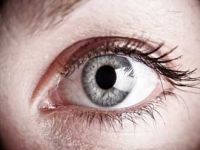Suntans are a threat to eye health
Toxic conjunctivitis, corneal infiltrates and allergy are the main risks

 Between Brazilians, the eyes represent the second part of the body most affected during the heat. They are only surpassed by skin cancer that saw 114,000 new cases in 2010 according to data from INCA (National Cancer Institute). However, the use of sunscreen can cause eye diseases. According to an ophthalmologist from the Institute Penido Burnier, Leoncio Queiroz Neto, lesions are caused by toxic components, especially preservatives. They reach the eyes through being smeared by the hands, sweat and excess application. The problem is that the population is unaware of the risk of contact with these substances with the ocular mucous membrane.
Between Brazilians, the eyes represent the second part of the body most affected during the heat. They are only surpassed by skin cancer that saw 114,000 new cases in 2010 according to data from INCA (National Cancer Institute). However, the use of sunscreen can cause eye diseases. According to an ophthalmologist from the Institute Penido Burnier, Leoncio Queiroz Neto, lesions are caused by toxic components, especially preservatives. They reach the eyes through being smeared by the hands, sweat and excess application. The problem is that the population is unaware of the risk of contact with these substances with the ocular mucous membrane.
Just to give you an idea, the specialist said that in the heat 39% of incidents of toxic conjunctivitis are related to the use of sunscreen. It is the inflammation of the conjunctiva, the membrane covering the sclera (white part of eye) and the inner surface of the eyelid. When realizing it has penetrated the eye(s), the doctor recommends washing the eyes thoroughly and discontinue use. To relieve the discomfort, filtered cold water compresses can be made and artificial tears can be applied. If the symptoms of itching, burning, discomfort to light (photophobia) and watering do not disappear, it is necessary to consult a specialist.
Low immunity may aggravate effect
Queiroz Neto says that with people who have low immunity, eye contact with toxic substances can cause a permeated cornea, a potentially serious complication of toxic conjunctivitis if not treated properly. "They are small opaque spots that result from inflammation and blur vision," he says. Treatment requires the use of topical corticosteroids, but should only be done with medical supervision. That's because, he explains, if it is interrupted abruptly, it makes the situation worse. On the other hand, this type of eye drops predisposes one to cataracts and glaucoma. It must be applied only when the benefit is greater than the risk.
In patients with drug allergies, he comments, sunscreen can cause allergic conjunctivitis in which intense itching is the main differential. It is a chronic disease that becomes acute in the heat. Someone who has an allergic reaction to sunscreen or other substances that enter the eye must not repeat the use. That's because the body creates a "memory" of the allergens which it is exposed to. The greater the exposure, the greater the chance for intolerance to develop when in contact with other products, he says.
How to protect your eyes without losing your tan
For those who do not want to give up a golden tanned body, the good news is that sunbathing can even do good for the eyes, if done between 10 and 15 hours. This is because the sun helps to absorb vitamin D, essential for bones and metabolism of vitamin A, a nutrient important for vision.
Tips from the specialist to associate a tan to eye health are:
1. Glasses with lenses that filter UV (ultraviolet) light protect the eyes from toxic conjunctivitis, allergy, early onset of cataracts (clouding of the lens), fotoceratite (inflammation of the cornea), pterygium and degeneration of the retina (the membrane that grows over the conjunctiva) .
2. Sunglasses without UV protection allow greater penetration of radiation on the eye and are more dangerous than the lack of them.
3. Use lenses with UV protection even on cloudy days. The UV radiation passes through clouds.
4. Tanning beds should be avoided because they emit UV radiation of the type that penetrates deeper into the eyeball.
5. Avoid using a self-tanner in the periocular region. It may cause allergy, toxic conjunctivitis, enhance the browning of dark circles and cause staining.
6. Foods such as papaya and carrot have a similar effect to self-tanning for depositing carotene in the skin and protecting vision.
7. More than 300 medications contain photosensitizing substances that enhance the harmful effects of the sun. When in doubt, always protect your eyes.
8. Take plenty of water. The sun's heat dries out tears, increasing cases of dry eye syndrome.
9. Keep your hands clean and avoid touching the eyes. The heat facilitates the growth of bacteria and cases of bacterial conjunctivitis.
Translated from the Portuguese version by:
Lisa Karpova
Pravda.Ru
Subscribe to Pravda.Ru Telegram channel, Facebook, RSS!


